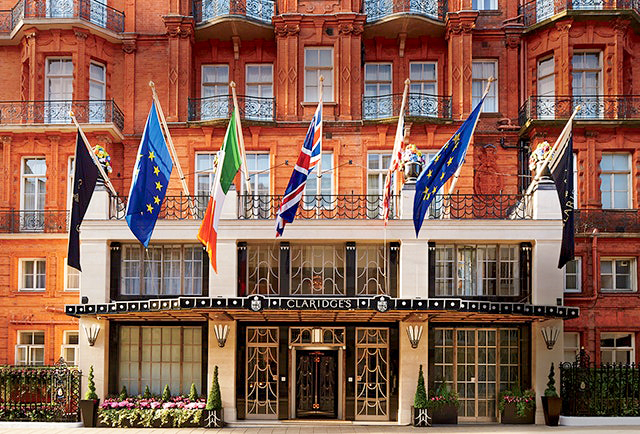In today’s fast-paced and unpredictable business landscape, organisations face a wide range of potential crises that can significantly impact their operations, reputation, and bottom line. Whether it’s a natural disaster, a cybersecurity breach, a product recall, or a global pandemic, the ability to effectively manage and navigate through crises is crucial for the survival and success of any organisation. In this article, we will explore the importance of crisis management, strategies for proactive planning and response, and the key elements of effective crisis communication.
Understanding the Significance of Crisis Management
Crisis management refers to the process of anticipating, preparing for, and responding to unexpected events that have the potential to disrupt normal business operations or cause significant harm to an organisation. It involves taking proactive measures to minimise the impact of a crisis and swiftly executing a well-designed response plan when a crisis occurs.
The ability to manage crises effectively is not only essential for minimising damages but also for protecting an organisation’s reputation and maintaining stakeholder trust. According to a study by PwC, 69% of leaders believe that their organisation’s reputation is more vulnerable to crises today than it was just a few years ago. This highlights the critical need for robust crisis management practices in today’s business environment.
Proactive Planning: Anticipating and Mitigating Risks
The first step in effective crisis management is proactive planning. This involves identifying potential risks and vulnerabilities, assessing their likelihood and impact, and developing comprehensive mitigation strategies. By anticipating potential crises, organisations can take pre-emptive measures to reduce their likelihood or mitigate their impact.
One valuable tool for proactive planning is a risk assessment. This involves evaluating potential risks across various areas, such as operations, finance, reputation, and technology. By conducting thorough risk assessments, organisations can identify vulnerabilities, prioritise them based on their potential impact, and develop strategies to address or mitigate each risk.
Preparing a Crisis Response Plan: The Key to Effective Response
Having a well-defined and regularly updated crisis response plan is essential for effectively managing unexpected challenges. A crisis response plan outlines the roles and responsibilities of key stakeholders, establishes communication channels, and provides a framework for decision-making during a crisis. It ensures that everyone involved understands their roles and is prepared to respond swiftly and effectively.
A crisis response plan should include:
- Clear roles and responsibilities
Clearly define the roles and responsibilities of key personnel, including a crisis management team and designated spokespersons. This ensures a coordinated and efficient response during a crisis.
Establish clear communication channels and protocols for internal and external communication. This includes determining who will be responsible for communicating with employees, customers, suppliers, media, and other stakeholders.
- Decision-making processes
Define decision-making processes and establish a chain of command for making critical decisions during a crisis. This ensures a streamlined decision-making process and prevents delays or confusion.
Effective Crisis Communication: Transparency and Empathy
During a crisis, effective communication is paramount. It is crucial to communicate transparently, honestly, and promptly to keep stakeholders informed and maintain trust. Timely and accurate information helps mitigate rumours, alleviate concerns, and demonstrate the organisation’s commitment to addressing the crisis.
Empathy is another crucial element of effective crisis communication. Understanding the impact of the crisis on stakeholders and demonstrating genuine concern can help build trust and support. As Warren Buffett once said, “It takes 20 years to build a reputation and five minutes to ruin it. If you think about that, you’ll do things differently.”
Organisations should establish communication channels and protocols in advance, ensuring that they have the capability to disseminate information quickly and efficiently. Utilising various channels, such as press releases, social media, websites, and direct communication, can help reach different stakeholders effectively.
Learning and Evolving: Post-Crisis Analysis
After managing a crisis, it is essential to conduct a thorough post-crisis analysis to identify lessons learned and areas for improvement. This analysis involves reviewing the crisis response, evaluating the effectiveness of communication, and identifying any gaps or weaknesses in the crisis management plan.
By conducting a post-crisis analysis, organisations can identify opportunities for strengthening their crisis management capabilities, updating response plans, and implementing corrective actions. This continuous learning and improvement process helps organisations become more resilient and better prepared for future crises.
Professional skills training programs offer valuable insights and practical techniques for effective crisis management. These programs equip individuals with the knowledge and skills necessary to navigate and overcome unexpected challenges, ensuring the continuity and success of their organisations.
Crisis management is an essential discipline for organisations operating in today’s dynamic and unpredictable business environment. By proactively planning for potential crises, preparing robust response plans, and communicating effectively during a crisis, organisations can navigate and overcome unexpected challenges successfully.
Implementing comprehensive crisis management strategies and techniques allows organisations to protect their reputation, maintain stakeholder trust, and ensure business continuity. By prioritising crisis management and investing in professional skills training, individuals can enhance their ability to anticipate, respond to, and recover from crises, leading their organisations through turbulent times with resilience and confidence.











